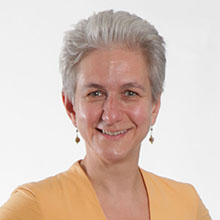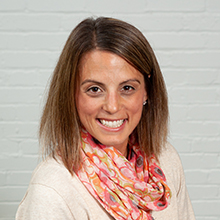Math for All

Project Director:
Funded by:
Atlantic Philanthropies; CME Group Foundation; National Science Foundation; U.S. Department of Education, Education Innovation and Research Program (current); U.S. Department of Education, Institute of Education Sciences
Partners:
Bank Street College of Education; National Louis University; New Mexico State University; Salish Kootenai College; Illinois Resource Center; Regional Office of Education #47; Westat; RTI International; EdResearcher
Focus Area:
Early Childhood Development & LearningEducation Workforce & SystemsElementary & Secondary EducationSTEM Education & Workforce Development
Region:
United States
Duration:
2024-2028
Challenge
Research shows that teacher quality is the single most powerful influence on student learning. Yet, many teachers do not feel well prepared to implement standards-based mathematics education with students with different strengths and challenges who are being served in general education classrooms, including students with disabilities. As a result, achievement data often show that students with disabilities are underperforming in mathematics.
EDC is collaborating with Bank Street College of Education and other partners to implement, test, and refine strategies for expanding their Math for All professional learning program to a variety of settings across multiple states, including Illinois, Montana, New Jersey, New Mexico, and New York. The project is designed to build local capacity and infrastructure to support the sustainability and continued expansion of the program after this project ends.
Key Activities
Math for All is a published professional learning program that helps schools implement high-quality, standards-based mathematics education. The program provides K–8 teachers with tools and strategies that improve their understanding of how individual students learn and the supports students need to be successful in mathematics. The program helps schools build a foundation for collaboration among general and special education teachers as they work to adapt their existing curriculum to ensure all students receive high-quality, rigorous mathematics instruction. The project team is currently carrying out the following activities to support the sustainability, spread, and shift to local ownership of Math for All:
- Train school- and district-based staff developers and teacher leaders as local facilitators to support the ongoing implementation of Math for All and to help teachers sustain the lesson planning and instructional practices embedded in the program
- Deepen school and district leaders’ understanding of Math for All professional learning and equip them to support teachers in improving all students’ mathematics learning
- Build the capacity of organizations such as regional education agencies, professional learning providers, and university-based teacher education programs to implement and sustain Math for All
- Develop professional learning materials for Grade 6–8 teachers to deepen and expand the use of Math for All within schools and districts
Our Impact
- Math for All has been implemented in 13 U.S. states. The project has prepared over 140 local facilitators to lead Math for All professional learning—supporting over 1,250 teachers in personalizing rigorous mathematics instruction to improve the mathematics achievement of the approximately 20,000 students they teach every year.
- Math for All has been demonstrated to positively impact teachers’ knowledge, beliefs, and classroom practices and to improve students’ performance in mathematics.
- Research findings show that Math for All, when implemented by local facilitators, has a significant impact on teachers’ perceived self-efficacy to teach mathematics to students with disabilities, an outcome that has been linked to improved student achievement. This finding replicates the results from previous studies in which Math for All was implemented by program developers, and speaks to the scalability of the program.
- Facilitator guides and participant books for professional learning workshops for teachers from grades K–2 and 3–5 are published by Corwin Press. Materials for professional learning workshops for teachers from grades 6–8 are currently in development.
- The project is publishing its findings in journal articles to inform practice and advance the field’s knowledge, as well as sharing via a video, blog posts, conference proceedings, and a regular newsletter.








